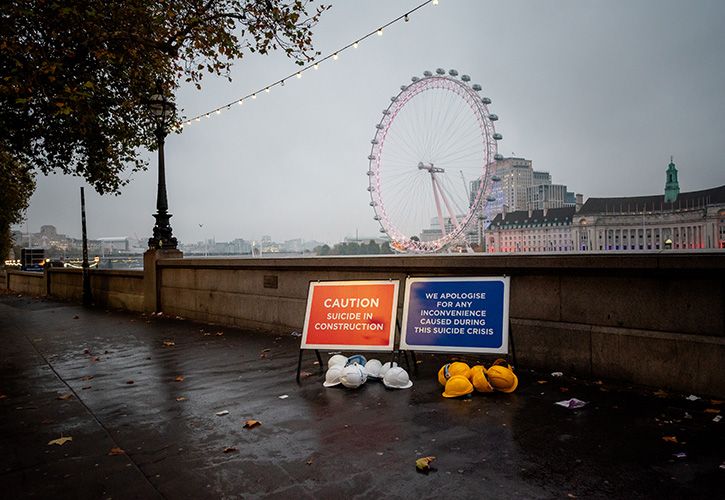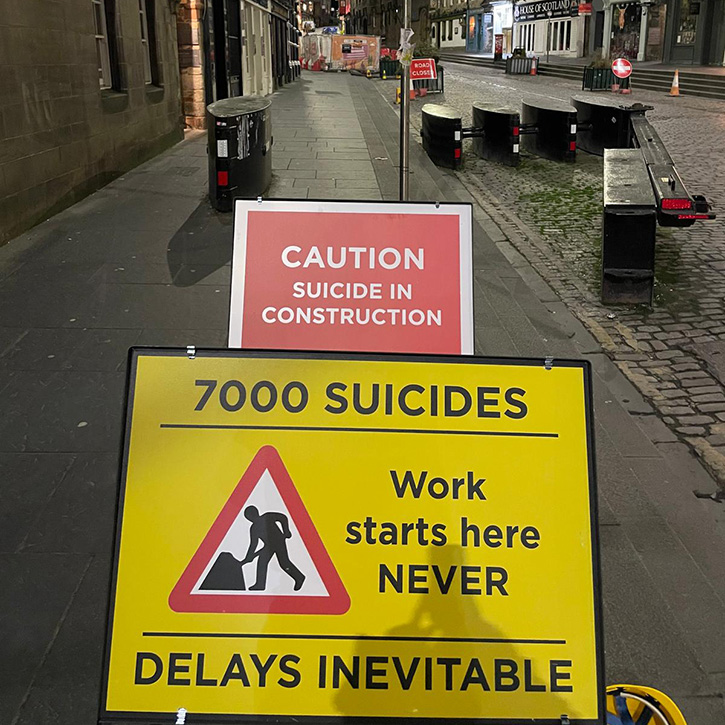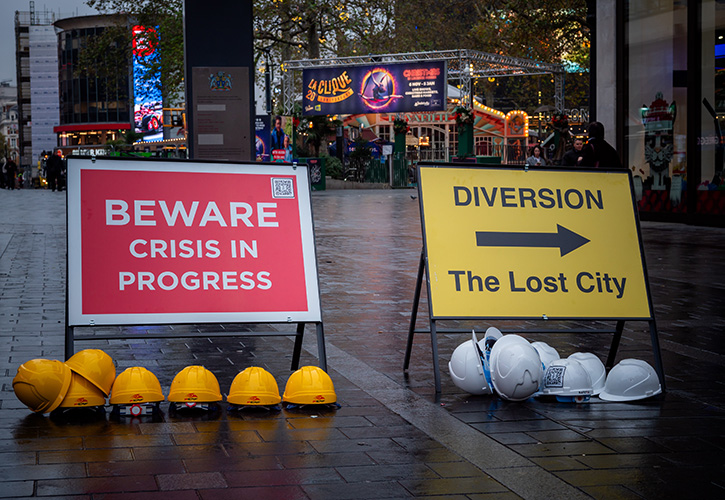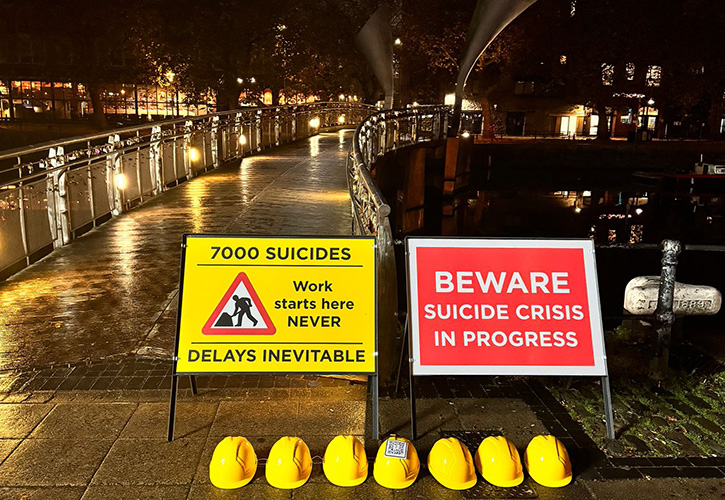UK DIY News
'The Lost City' Campaign Highlights Construction's Suicide Crisis

A new campaign is being launched in 10 cities across the UK to remember more than 7,000 construction workers who have died by suicide in the past decade. The UK has missed out on building a city the size of Cardiff due to the mental health crisis in the construction industry, which sees two tradespeople per day taking their own lives.
Campaign Overview:
The "Lost City" campaign sheds light on an urgent crisis in the UK construction industry. Over 7,000 construction workers have died by suicide in the past decade - equivalent to the population needed to build a new city. The campaign starkly illustrates the human and economic impact of these tragic losses. This effort aims to raise public awareness and secure £2.5 million to provide life-saving mental health support, including therapy sessions, to tradespeople across the UK.
What’s happening?
In a powerful visual statement, 7,000 hard hats will be placed across the UK, each representing a life lost to suicide within the construction industry. Accompanying them, 10 cities nationwide will see reimagined construction signs, serving as poignant reminders of the workers who could have built our homes, schools, and hospitals but were lost to mental health struggles. This is being coordinated by On The Tools, the largest online construction community in the UK, with 8.5 million followers across their social platforms.
Where?
These signs will be taking over key cities across the UK: London, Bristol, Cardiff, Birmingham, Nottingham, Manchester, Liverpool, Leeds, Newcastle and Edinburgh.
Key Objectives:
1) Raise Awareness: Elevate public consciousness around the critical mental health
crisis facing UK construction workers.
2) Raise £2.5 Million: Funding will directly support tradespeople in accessing crucial
mental health services and therapy, aiming to prevent future loss of life.
‘We want to provide therapy to tradespeople in the UK to save the next 7,000’.
Co-founder and CEO of On The Tools, Lee Wilcox.

Key Stats
- The suicide rate in construction is four times the national average. (SOURCE: ONS)
- Over the last decade, more than 7,000 construction workers have died by suicide.
- These lost lives could have built 150,000 affordable homes, 78 schools, 200 apartment blocks, 30 small offices, 1 large hospital, and more.
- UK tradespeople are 26% more likely than other workers to experience mental ill health (SOURCE: ON THE TOOLS)
The Reality of the Construction Suicide Crisis:
Beneath the towering cranes and scaffolding of the UK’s construction sites, a hidden crisis is reaching breaking point. The nation’s tradespeople - the backbone of our infrastructure - are crumbling under a relentless weight, not of concrete and steel, but of unaddressed mental health struggles that threaten to bring the industry to its knees.
The construction industry has a suicide rate four times the national average, with mental health struggles often overshadowed by the demands of gruelling work hours, financial pressures, and high levels of isolation. The impact is both personal and widespread, with more than 70% of tradespeople reporting mental health issues, and 64% turning to alcohol or drugs to cope. If doctors, teachers or white-collar professionals were experiencing this crisis, it would be high on the national agenda to fix.
However much of the UK public are unaware of the scale of the issue. That's why On The Tools have brought together the industry to distribute these signs across the UK that highlight the number of lives lost over the last decade, and a stark warning about the suicide crisis.
The campaign underscores the potential scale of lost output: 150,000 homes, 78 schools, and numerous public facilities — structures that could have transformed communities but remain unbuilt due to these preventable deaths.

Industry-Specific Challenges:
- Isolation: With 96% of tradespeople working alone, the isolation heightens mental health risks.
- Financial Strain: 65% experience financial stress, often exacerbated by inconsistent payments, impacting well-being.
- Inadequate Mental Health Support: Only 32% of workers have access to counselling, with many unaware of available support systems.
This human and economic toll is unsustainable. In 2023 alone, mental health-related absences cost the industry £2.74 billion. This campaign calls for the sector to confront these.
Wider Visual Impact – The Lost City:
Through visualizing the potential of a lost city—a city that could have existed if not for the construction suicide crisis—this campaign brings attention to the staggering losses of lives and human potential. This city, with 150,000 homes, 78 schools, and vital community spaces, is a poignant reminder of what has been lost and why change is essential.
About Our Partners:
- OnTheTools: As the UK’s largest tradespeople community, On The Tools amplifies voices and provides resources to improve tradespeople’s lives.
- Band of Builders: This charity provides practical, financial, and wellbeing support to UK construction workers facing life-altering circumstances.
- Construction Sport: Offers UK construction workers a healthy outlet through sports, enhancing physical and mental well-being.
Suicide in the industry affects every one of us. That’s why 15 different companies in the trade have come together to make this project possible: Bostik, CT1, SIG Roofing, Crown Paints, Speedy Hire, Toolstation, Jewson, Trade Direct Insurance, Paintwell Ltd, Howdens, The IPG, CEF, Wienerberger, LG Harris. 
Learn more about The Lost City here
Source : On The Tools
I find the news and articles they publish really useful and enjoy reading their views and commentary on the industry. It's the only source of quality, reliable information on our major customers and it's used regularly by myself and my team.











































